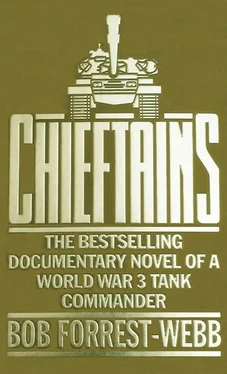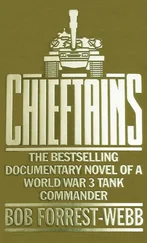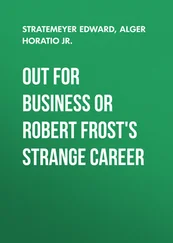‘You’ll tell Sandy?’
‘Yes, I’ll tell him. If you see a flash of blue light from his tank, it’ll be him reacting.’
Roxforth was experiencing some of Sache-Worrel’s feelings on hearing the information passed him by Gunion. It wasn’t easy to tell your commander he was wrong and, like Gunion, Roxforth hadn’t heard the original coded message. He was tempted to let the matter slide; sooner or later Fellows himself would realize he had made an error and would probably correct it. The only trouble with that line of reasoning, Roxforth knew, was correction might be impossible if too much time was lost. A Soviet division’s main headquarters was as mobile as the battlefront itself. The opportunity to knock it out might never occur again… there were too many contingencies involved to guarantee the survival of the stay-behind unit for more than a few hours. One surprise attack during the darkness of the first night was all they could count on; with a lot of luck, they might even manage two. But by daylight, the Russians would be looking for them. Even if they remained where they were now, every hour that passed brought a greater chance of discovery as more enemy troops entered the area and the Soviet consolidation and mopping-up began.
Although Roxforth liked Sache-Worrel, he was hoping the second lieutenant was wrong. It would be much better if Fellows could simply shrug his shoulders and say: ‘Nothing to worry about, everything is fine.’ The entire incident could be passed off as normal anxiety in this kind of situation. It would be forgotten immediately.
Mick Fellows was standing beside his Scimitar when Roxforth found him, staring out into the darkness of the woods. ‘Sir?’ Fellows was as twitchy as the rest of them, and turned quickly. ‘Can we talk for a minute?’
‘I shouldn’t wander around too much,’ suggested Fellows. ‘I’d rather you all kept to your tanks until the recce patrol gets back. What’s the probelm?
‘The message from HQ. I didn’t hear the original code.’ Roxforth found himself speaking over-quickly.
‘Having doubts, Sandy? Don’t worry. These damned SAS are taking their time, they’re overdue. It shouldn’t have taken them so long, we put them down within a couple of miles of the location. This waiting makes all of us edgy. It doesn’t help hearing the sound of battle all the while; makes you want to get in there and do something. Bloody frustrating. How are the crews?’
‘Fine. Most are sleeping.’ He knew he was going to have to persist even if Fellows did get angry with him. ‘What was the code, sir?
Fellows replied sharply, ‘Trophy Bacon Sunset Juliet. What’s on your mind?’
Oh Christ, thought Roxforth, there has been a mistake! ‘The thought dismayed him though he hadn’t spent too much time dwelling on the consequences of the error. He said, ‘I’m sorry, sir. I think there’s been a mistranslation.’
‘Nonsense!’ Fellows was immediately defensive, and annoyed. ‘The translation is correct.’
‘Bacon, sir.’
‘Bacon is Hehlingen.’
‘No, sir. Bacon is Bisdorf. Hehlingen is Brandy.’
Roxforth could sense Fellows bristling in the darkness. ‘Now see here, Roxforth…’ Fellows paused, thought for a few moments as his doubts grew then spoke more softly. ‘Damn… damn!’ He had been showing off in front of the SAS lieutenant… if he had taken just a few mare seconds to check the message.
‘It was a mistake for HQ to choose neighbouring towns with code names beginning with the same letter,’ said Roxforth, offering his commander an excuse.
‘No need for eyewash, Sandy. Which one of you spotted the error?’ Fellows answered the question for himself. ‘Only Sache-Worrel could have heard the original.’
Roxforth realized the knowledge it was the junior lieutenant wasn’t going to make it any easier for the captain.
‘I wish to God he’d spoken up at the time,’ said Fellows, quietly.
‘I don’t believe he thought about it until we reached here… then he wasn’t certain how to handle it.’
‘Are the crews aware of this?’
‘Of course not.’ Roxforth could see no point in reducing the men’s confidence in their commander. Everyone could make mistakes, and he could appreciate the captain’s feelings.
‘One kilometer west of Bisdorf would put the Red HQ about three K’s from the A2 autobahn.’
‘Or thereabouts,’ agreed Roxforth.
‘And we’ve lost three hours.’
‘We may be able to recover time,’ Roxforth said, encouragingly.
‘Nonsense. There’s no way you can recover lost time. Damn and blast! Get the crews ready to move out. The minute Hinton is back, we’ll get going.’ He studied his watch. ‘I’m giving him another thirty minutes.’
‘Yes, sir.’
‘You don’t need to "sir" me, Sandy, just because I’ve made a bloody fool of myself. And by the way, I’ll make out a report of the matter afterwards.?
‘I don’t think that will be necessary.’
‘It is necessary. Thank young Sache-Worrel for me will you. Tell him he did the right thing, Sandy. Late, maybe, but right.’
Fellows watched him walk away through the shadows of the woods. He felt angry with himself; not only angry, but ashamed. He had prided himself that his career had been near-faultless, no errors in training, always the highest marks; a close runner-up for best cadet at Sandhurst. He had never put a foot wrong, until now. And this had been what all the training had been about — war. He had made a balls of his first command in real action. Why? Because he had been unable to trust the judgement of a superior officer. He still believed his German CO was wrong; if you were going to have armoured stay-behind units, then they should be Chieftains with more protection and heavier weaponry, not lightly-armed Scimitars. But as he had always felt this, then he should not have accepted the command; he should have had the courage to refuse. His lack of conviction in the practicability of the scheme had led to his carelessness. Responsibility now for its failure was totally his own. It was not going to be easy to live with in the future; he rejected imperfection in others, but had discovered it in himself.
Hinton’s patrol had been unsuccessful. He returned feeling dispirited. They had probed further than he had originally intended and still found no indication of the enemy main HQ. They had seen Russians; a field hospital, a number of engineering units, and two kilometers west of Rosche a motor-rifle company. He was surprised by Fellows’ casual acceptance of his failure, it seemed out of character with his own experiences of the tank captain.
Fellows said, simply, ‘Bad luck, Hinton. Well try again to the south… to the west of Bisdorf. Get your lads on the APCs briskly, we don’t want to waste any more of the darkness.’
Fellows led them south-west for several kilometers, then crossed the Wolfsburg Neindorf road and swung east. Movement was difficult. Whereas on their first run from the bunker they had been travelling almost due west and in the general direction of the Soviet advance, now they cut across the main supply line of the enemy division. The Russian commanders were making use of darkness to move up their supplies and reinforcements, and those south of Neindorf were coming within range of the NATO howitzers sited west of Köningslutter. The ground the Scimitars and APCs were now covering bore signs of heavy battle activity. Every dip in the fields, every wood and copse, farmhouse and village had been defended. Damaged and wrecked military vehicles and equipment littered the fields and roadsides, some of the vehicles still alight, their metalwork twisted and blackened, the corpses of their crews around them. There were wounded men in the ditches and shell craters; sometimes they moved or signalled frantically at the Scimitars. Fellows knew that many were NATO soldiers, but there was nothing he could do for them, and therefore no gain in slackening the speed of his unit. Some would survive, but they would have to wait until the Soviet medical units had attended their own men.
Читать дальше












